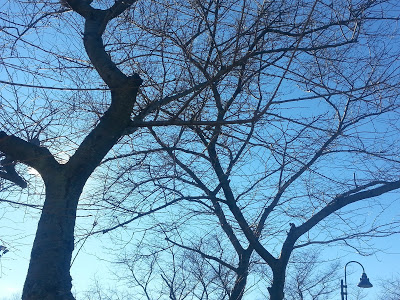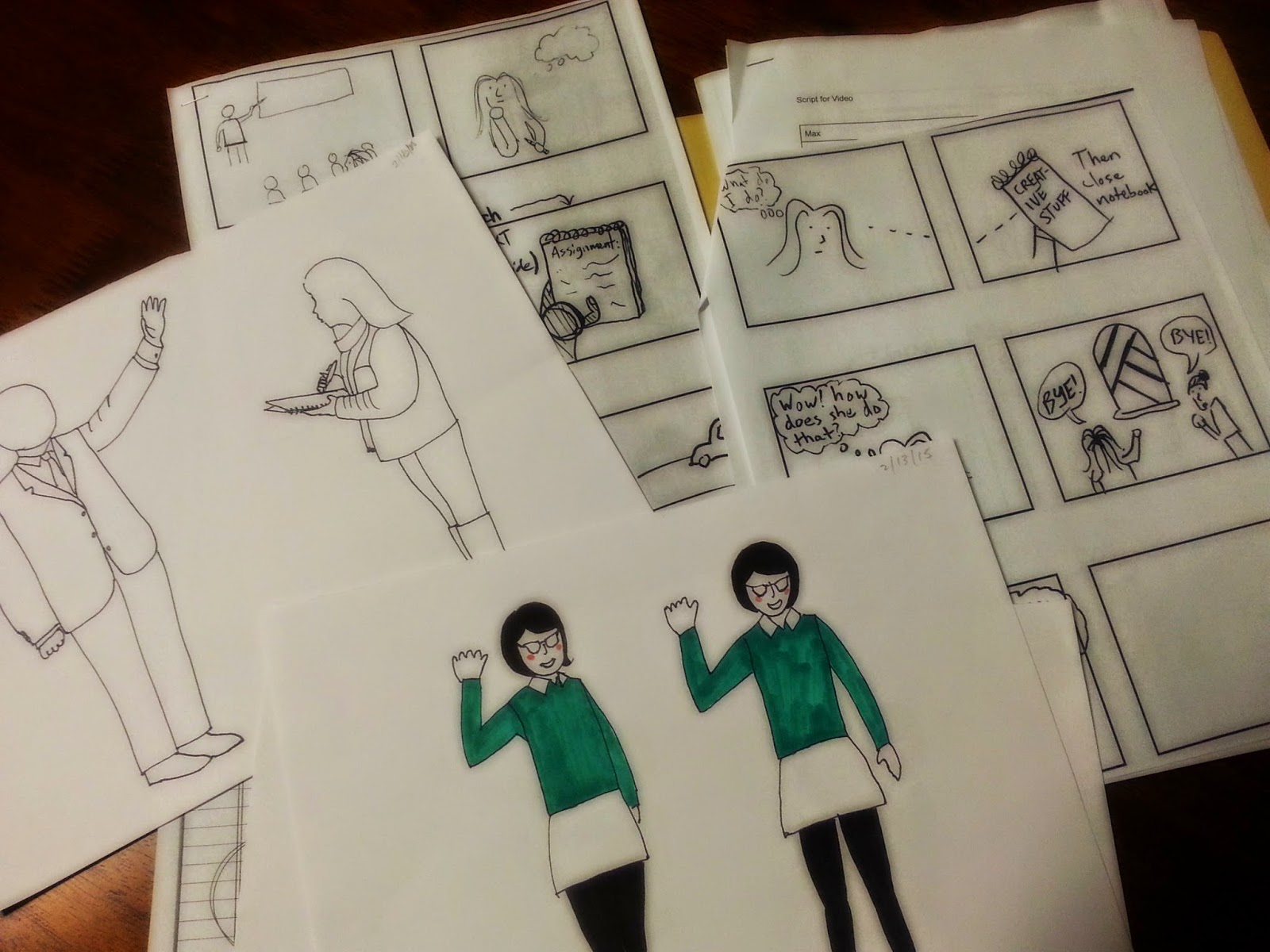What an Instructional Designer Learned from The Great British Baking Show
I am late to the party. I just finished one season or the Netflix Collection 5 of The Great British Baking Show (aka The Great British Bakeoff), the one where (spoiler alert!) an army officer won. Have you watched any of the shows? If you plan on watching the series, you can opt to stop reading now. If not, you may proceed!
I’ve read many things about the show. Many people find it charming to the point of becoming addicted to it. I binge watch some Netflix or Amazon Prime series too; so I can understand that obsession and identify with the appeal of this show. The contestants are down-to-earth and not so competitive that they won’t help each other. At the final countdown, you can see the faster ones trying to help the slower ones decorate or arrange their bakes. Like Dancing with the Stars, contestants don’t compete for big money. There is just a trophy to win. Of course, (who are we kidding?), being on TV and being seen by millions of others is the real prize. Sophie Faldo, the winner, has gone on to intern at Michelin starred restaurants and opened her own banquet catering business. Other contestants have written books and become minor celebrities themselves.
As I thought about the implications of game shows and reality TV for instructional design, I find myself arriving at a few key implications:
-
The competitive element done right can be motivating.
This is a key ingredient of game-based learning. Competition to be at the top of a leader board spurs many. It can be malevolent when abused — think Tonya Harding — but rewarding when appropriately harnessed. I often appreciate how the presenters of the show, Noel and Sandi, would break the judges’ decision to the contestants so graciously, and how (apparently) agreeably and good-naturedly the contestants would accept the verdict. I know the show is edited but, regardless, I am impressed by how contestants can compete and not become excessively competitive to the point of being catty.
-
Using the show’s format in course and learning design.
The goals of the show are simple and very clear to contestants. Contestants are asked to show off their skills by surmounting 3 challenges:
- The signature challenge: create recipes that they have tried and tested with friends and families.
- The technical challenge: use the same pared-down recipe to demonstrate their technical skills and experience.
- The showstopper challenge: a recipe that shows off their creativity and talent.
In the educational context, the show’s structure led me to ponder these questions:
Are my students clear about what they are asked to do? Is it challenging? Do I challenge them technically as well as creatively?
How can I design a signature challenge for my learners? A technical challenge? Or a showstopper challenge? Often the “showstoppers” in academic courses appear to be the final exams or final papers. Do learners love doing them? Why or why not? What could be a more appropriate showstopper?
In which disciplines or subjects would this design format be appropriate? Methinks this approach would be suitable for skills-based or performance based learning such as web design, media development, art-based learning, arts, science and technology maker-oriented subjects.
-
Community is key.
The camaraderie among contestants is palpable in every episode. At the end of the final episode, before the credits rolled, updates on what the contestants were doing flashed by. A few were traveling together and two had become BFFs. Over the years, I’ve seen with my own eyes and know from my own experience that what matters after school is past, is the relationships. My former students often recount during our meetups that I had said this or that to them. They don’t talk about what I had taught them; they reminisce about my encounters and connections with them.
As a lifelong learner, I also treasure the interactions I have with other learners. A colleague counters this idea and says she simply wants to complete a course and get those CE units. I guess it often depends on the nature of the course and the target audience. If someone is taking a course to acquire credentials, then interactions might not matter as much to the individual, although this shouldn’t suggest that social learning has no place in the design. Social learning is key to all learning IMHO.
So, binge watching NetFlix has its benefits. The next time you find yourself itching to call me a couch potato, think again!




3 Comments
Tanya O'Reilly
I enjoyed reading this, especially as I am a fan of the GBBO and my own research area focuses on assessment in HE.
This post got me thinking about:
1) my own experience as a HE student;
2) how I teach and assess.
As an undergraduate I majored in applied linguistics, minored in English literature. At postgraduate level it was applied linguistics and digital education. I felt when it came to learning and assessment we focused mostly on ‘technical challenges’ and ‘showstoppers’.
The ‘technical challenges’ would be to master anything from testing out analysis of literature through specific lens, transcribing phonetic texts, identifying social markers in speech and text, validating linguistic rules through corpora, to mastering applications of digital technology. These challenges tended to be more on the formative scale of assessment but could also be graded.
The ‘showstopper’ was usually, like you suggested, the final examination, which could be analysis of unseen texts, a digital project, or small-scale research projects. This was the students’ time to showcase what they had learnt throughout the course/programme.
I always felt most creative and motivated when I had the freedom to choose what I did (even this meant choosing a theme out of the list provided).
Saying that, I did enjoy the thrill of unseen exams, too. For many, these can be quite stressful because you really don’t know what will be on the test. This means you can’t really be strategic and selective when it comes to studying. I don’t know if I enjoyed these types of examinations because that is what we were used to in the UK ( a type of cultural conditioning?). This type of assessment is much less common in Sweden, and the majority of my students found such challenges very stressful.
The only restriction on the GBBO challenges is that each contestant always works alone. In contrast to the GBBO, the US show ‘The Next Great Baker’ has contestants doing collaborative challenges. These collaborative challenges focus quite a lot on the process as well as the end product…both of which, I think, there is a place for in education courses/programmes.
In my own education, esp. as an undergraduate, what I found lacking was the equivalent to the ‘signature challenge’. As I see it, this is were participants show what they already can do/are good at. Is this because undergraduates are seen as new, not having mastered skills in the field yet?
Without having reflected much upon this, my inkling is that this could be a challenge placed at the start of a course. A challenge to stimulate students’ previous knowledge and experience to then help connect it to what they are learning.
As a senior high school teacher of English language and literature, I relied heavily on ‘signature challenges’ especially when introducing something new, to motivate students and help them connect. I carried this into my teaching at university level (undergrad level). An example was when I had to introduce concepts such as: Community of Practice and legitimate peripheral participation. Even if these undergraduates hadn’t come across the theory, these are still concepts they have practised throughout their life.
All in all, I quite like this format for learning and assessment. Thanks for writing this, Yin, and making me think about it.
Yin Wah Kreher
Hey thanks, Tanya, for a thoughtful response. I too, think we in higher ed — for me, mostly based on my American experience here — spend a lot of time providing summative assessments, not always GBBO “showstopper-worthy” ones. You and I share a lot of common experiences in formal ed. I majored in linguistics and sociology and minored in Chinese Studies (studying Modern Chinese literature and history, and Translation studies). Most if not all of my assessments were required essays or reports, or translation pieces of English/Chinese to Chinese/English documents. I found Final Exams in undergraduate education very stressful. I much preferred the papers I had to write in USA/ grad school where I specialized in Instructional Design, Development and Evaluation. I also enjoyed the maker ed that provided me with opportunities to demonstrate my graphic design and media development skills. Evaluation studies fascinate me as much as design studies. I very much enjoyed the challenge of researching and synthesizing information to produce a piece of critical thinking paper. Are they showstoppers? I guess it is, especially when I receive an A+ for a paper and the professor provides feedback that indicates that I’ve mastered the concepts and am able to transfer the learning to a new context.
As an instructor of English/Literature/Communication Skills/Instructional Design/Tech, I have given mostly showstopper and technical challenges. You are correct that we don’t offer Signature Challenges which show that we have mastered a certain level of skills and gained recognition from our close friends and family. I interpret the challenges this way: Signature Challenge is a way for us to bring our learning from “home” (or any context) to school, another context. So your insight into offering it at the beginning of a lesson is not a stretch (which is what they do in GBBO too). One thing we don’t do very well in schools and universities is we don’t tap into the prior knowledge of learners very well. A Signature Challenge would be a good idea to implement in formal ed, as a way to acknowledge prior learning and that learners are not blank slates when they come into schools. The new approach of competency-based education is trying to do a better job of recognizing a learner’s prior experiences. In teaching postsecondary learners, I found myself more experimental in my teaching and assessments. I offered more experiential and maker-oriented performance assessments, but typically done at the end. The GBBO is a good reminder that I can afford learners the opportunities to complete assessments at the beginning of a lesson to show me what they already know and had been recognized as having mastered by their close friends.
I’d say that GBBO has perhaps tried to reduce complexity by not including paired or collaborative baking.”Too many cooks spoil the broth” literally? :-) But it’s fantastic what we can learn from game shows!
Assessments is a favorite research topic of mine. To wonder if you have made a difference is not a strange idea. The GBBO format is a good reminder about what we can do in education to make learning fun and impactful! We should turn this into a conference presentation or a paper! What do you think? Possibilities?
Tanya
Thanks for your reply! It’s really interesting to learn what we have in common and hear your experience and ideas.
After reading your response, I have a few different ideas running through my head. I’d love to explore this more with you! Let’s get a shared doc sorted out and hash the details out 😀